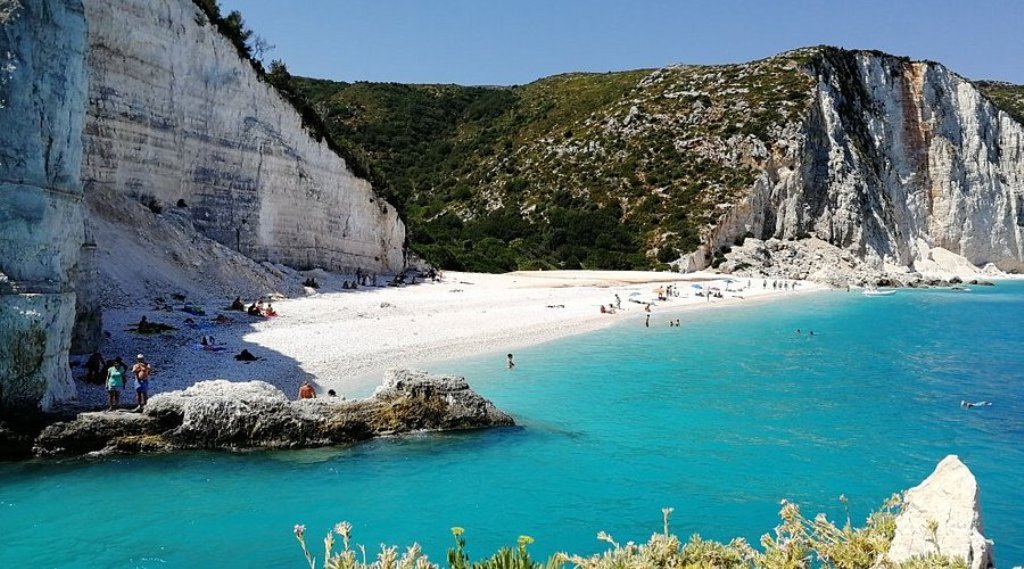From milkshake men and sauna anthems, to a reimagining of Laika the Soviet space dog’s tragic tale, these are our favourite tracks from the acts competing to win Eurovision 2025.
Eurovision returns next week for its 69th year, and this time the world’s most gloriously bonkers singing competition is heading home to Switzerland – the country that hosted the first ever contest back in 1956!
After last year’s drama-filled edition, including wide spread protests over Israel’s participation, as well as the Netherlands’ Joost Klein being unexpectedly excluded, this year looks set to bring just as much chaos, controversy, and camp.
The political storm hasn’t calmed. Slovenia, Spain, Iceland and most recently Ireland have all raised concerns with the European Broadcasting Union (EBU) about Israel’s inclusion again this year, citing its ongoing military actions and blockade in Gaza. Meanwhile, 72 former Eurovision contestants have signed an open letter calling for the country to be banned.
But it’s not all global politics – there’s still the usual Eurovision ridiculousness many of us tune in for. Case in point: Malta’s entry Miriana Conte had to change her song titled “Kant” after the EBU decided it sounded a little too much like… a slightly naughtier four-letter word in English.
And in a surprising turn for the better, this year features the highest number of non-English entries since the language rule was scrapped in 1999.
Ahead of the Grand Final, taking place on Saturday 17 May, we’ve bravely listened to all 37 entries so you don’t have to (seriously, don’t). And while a lot of them feel like tracks you’d hear in the changing rooms of an H&M, there are a few gems.
So, here are our picks – the ones we think could either snatch the trophy or at least become cult favourites among the Eurovision faithful.
Go-Jo – Milkshake Man (Australia)
Australia really understood the assignment this year with their Eurovision entry, ‘Milkshake Man’ – a frothy, flirtatious, innuendo-filled banger from French-Aussie pop oddball Go-Jo. Let’s just say it’s a very fitting song for the 69th year of the contest!
It’s three minutes of pure, unpasteurised joy. “I can tell you want a taste of the milkshake man” rings out over a psychedelic synth-pop beat – it’s campy, incredibly catchy, and totally unserious. And honestly, that’s a breath of fresh air in a contest that sometimes thinks it’s the solution to world peace.
Lactose-intolerant viewers can also finally rejoice in a bit of horny dairy-based representation as the 29-year-old singer declares “I’ve got chocolate, vanilla and lactose free / and a caramel banana that you have got to see.”
Give this one a couple of listens and by the time the finals roll around, you also will most likely be begging for a taste of the Milkshake Man. Please drink responsibly. Theo Farrant
Emmy – Laika Party (Ireland)
Have you heard of Laika the Soviet space dog? She was launched into space aboard the Sputnik 2 in November 1957, and died shortly after from hyperthermia.
It’s not a story that screams Eurovision song vibes, but Norwegian singer Emmy, who is representing Ireland at this year’s contest, has turned it into one by giving Laika the happy ending she deserved.
And that’s exactly why it’s getting my vote — because life is cruel, and rewriting its tragedies into optimistic bops is certainly one way of coping.
For millennials and older gen-Z, it’s also a throwback to the retro-style Europop that once soundtracked sipping squash at school discos in the 2000s. That nostalgic quality makes all the more sense when you realise it’s not only a song about an aeronaut pup, but also the sweet naivety of childhood hopes.
As the chorus cries: ‘I Hope Laika never died and that she spins around us still / and that she has a party in the air and always will’ — did someone turn on the wind machine in here? Our tear ducts are playing up again!
Emmy, 24, has been participating in various international song contests since she was 15, but this is her first time at Eurovision. She was inspired to write about Laika after a family quiz raised the topic: “It made me think of how incredibly sad her story was,” she told Eurovisionworld. “And that made me want to write her a happy scenario instead.”
While not as overtly dark as last year’s Irish entry from Bambi Thug, ‘Laika Party’ grooves on an undeniable bleakness, blasted into buoyant daydreams by the upbeat melancholy of its Scandinavian sound. It’s totally nonsensical, yet surprisingly meaningful too. There’s something very life-affirming about the heroism of a little dog being given the emotive dramatics of a pop song.
And what is Eurovision if not pure escapism from the world’s unrelenting terrors? An event so full of garish spectacle and silliness, it allows us to disappear into an alternate reality — one where cannons fire glitter, and Laika is still happily dancing among the stars. Amber Bryce
JJ – Wasted Love (Austria)
Austria is hoping to secure its third Eurovision win with 23-year-old Austrian-Filipino countertenor Johannes Pietsch – aka: JJ – who could follow in the glorious footsteps left behind by drag icon Conchita Wurst in 2014.
The two certainly share a flare for the dramatic.
Having already made a name for himself in the world of classical music and for using his voice as a master instrument, JJ is banking on a soaring popera anthem – which, as its title suggests, is about the torment of unrequited feelings.
‘Wasted Love’ is… well, it’s a lot. The genre-bending song starts off as a delicate ballad about drowning in emotion and feeling like you’re sinking at the deep end. It takes a turn when JJ breaks into an increasingly heartfelt (and very high-pitched) complainte, before morphing into what the iceberg which hit the Titanic would have referred to as a nu-disco fantasia. The crescendo is quite something: an explosive EDM that once again shows off JJ’s remarkable (frankly, ludicrous) range and also proves that being adrift in the emotional abyss and having a bop needn’t be mutually exclusive.
Quite how everything goes from the ballroom to the club in the space of two minutes and 50 seconds is beyond me. However, at a time when we’re all trying to untangle the emotional complexities the decry from the shitshow of daily life, ‘Wasted Love’ is a compelling case for heading straight into the eye of a storm.
And maybe, just maybe, comfort comes after the turmoil… If not, Austria still has popera perfection on its hands, a textbook example of what Eurovision songs should sound like. Surely, in lieu of comfort, that’s worth the coveted microphone statue… David Mouriquand
Ziferblat – Bird of Pray (Ukraine)
Ukraine’s been on a serious Eurovision hot streak: a win for the Kalush Orchestra in 2022, a solid sixth-place finish in 2023, and third place last year. While some might be quick to label these results as driven by “sympathy votes’ – given the ongoing war following Russia’s invasion – let’s be honest: the songs have slapped (politically, emotionally, and sonically).
This year’s entry is no exception. Ukraine returns to the contest with ‘Bird of Pray’ by Ziferblat, a trio made up of vocalist Daniil Leshchynskyi, guitarist Valentyn Leshchynskyi, and drummer Fedir Khodakov. The song is an emotional reflection on the toll of war, exploring what it means to be separated from loved ones, to live in grief, in fear, and still try to hold onto hope. In this case, that hope is symbolised by a bird.
“It’s about the problems we go through, the tragedy of the last three years,” lead singer Valentyn Leshchynskyi told Eurovision fansite Wiwibloggs
Musically, the song is hard to pin down. It opens with ethereal female vocals before plunging into group chants of hypnotic Ukrainian vocals, layered over a moody prog rock ballad backing. Then the chorus hits, and suddenly it shifts to full-on musical theatre – big strings, huge emotion, almost like something from an anime soundtrack. “Fly. Bird. I’m begging you. Begging you, please just live” pleads the lead vocalist. For my money, it’s a real standout in a year laden with one too many squeaky clean, forgettable pop songs.
And in recent days, the songs’s message has become even more hard-hitting. Khrystyna Starykova, a 19-year-old backing vocalist for Ziferblat, revealed that her home in Myrnohrad was destroyed by Russian shelling. Now rehearsing in Switzerland, she shared photos of the wreckage online. Theo Farrant
KAJ – Bara Bada Bastu (Sweden)
This year’s Eurovision song from Sweden has a simple message – and it’s one we can all get behind: Let’s just sauna.
In case you’re unaware, saunas are a big deal in Nordic countries. Not only an activity – they’re a way of life; one that’s rooted in ritualist, spiritual and communal practices. There was even a sauna world championship hosted for over a decade in Finland (which ended in 2010 after someone died, but let’s not bring the mood down.)
The point is, like all great loves in life, saunas deserve a song dedicated to them – and Finnish comedy music group KAJ have finally delivered one. In fact, their Eurovision entry might be the steamiest (every pun will be intended) yet, and also happens to be the first Swedish-language song to be performed at the contest since 2012.
Unlike Sweden’s previous entries, content to follow the formula of perfectly polished pop anthems, KAJ chose to turn up the heat and get unashamedly goofy with their caricatured embrace of cultural idiosyncrasies. The music video features synchronised dancers in towels and sauna hats, for goodness sake!
It’s a refreshing change of direction for a country whose last two wins both came from Loreen, in 2023 and 2012. While epic electro ballads about love and emotional turmoil are nice, maybe what we really needed all this time was a twee tune about wood-paneled walls.
Musically, there are all the right amounts of campy earwormery here, with the whispered cry of ‘sauna!’ hitting like a watery revelation to the hot rocks of our subconscious. Indeed, the song also serves as an important reminder to prioritise self-care and connection in these trying times – gotta let off a little steam now and then, literally.
I’m not alone in championing ‘Bara Bada Bastu’ – it’s currently the bookies’ favourite, with a 40 per cent chance of winning. Sauna or not, other entrants should probably start sweating. Amber Bryce
Claude – C’est La Vie (Netherlands)
The Netherlands didn’t have a great time of it last year…
The country’s 2024 representative Joost Klein was disqualified over an alleged “backstage incident” – the first time that an act had been banned after reaching the Grand Final in the competition’s 68-year history. The Swedish prosecutor ended up dropping the investigation due to lack of evidence and for a while, there were rumblings that Klein could come back for a second shot at the top title…
In the end, the honour went to Claude – and while Klein was one of our favourites to win last year, I’m glad this year gets a new entry. It’s a clean slate, and we’re off to the races. In both French and English.
Originally from the Democratic Republic of Congo, Claude Kiambe has already made a name for himself thanks to his single ‘Ladada (Mon Dernier Mot)’, which has racked up over 57 million streams. He was also named Best Artist of the Year by Qmusic, and his debut album, ‘Parler Fraçais’has been a critical success since its release last year.
While I was initially disappointed by the fact that ‘C’est la vie’ wasn’t a retooled cover of the 1998 hit by Irish act B*Witched – A STONE COLD CLASSIC FROM DANCE VISIONARIES, AND I WON’T HEAR ANOTHER WORD SAID AGAINST IT – Claude’s song nevertheless impresses.
Like Austria’s ‘Wasted Love’, this one’s also a bit of a genre-bender. It opens as a piano-led ballad with a potent emotional pull before erupting into a thumping Caribbean zouk dance track. Unlike Austria’s entry, this is a more positive sounding number, one which Claude has said he hopes encourages people to “focus on the brighter side” of the world.
So, let’s recap: An emotionally engaging song with autobiographical inspiration, as Claude sings about his mum. Commendably, he does so without feeling the need to constantly repeat the word ‘maman’ 50 times – unlike this year’s underwhelming French entry. And on top of everything, the song is catchy and with a high potential for singalongs.
C’est la vie? Non. C’est (peut-être) la victoire. David Mouriquand / euronews



